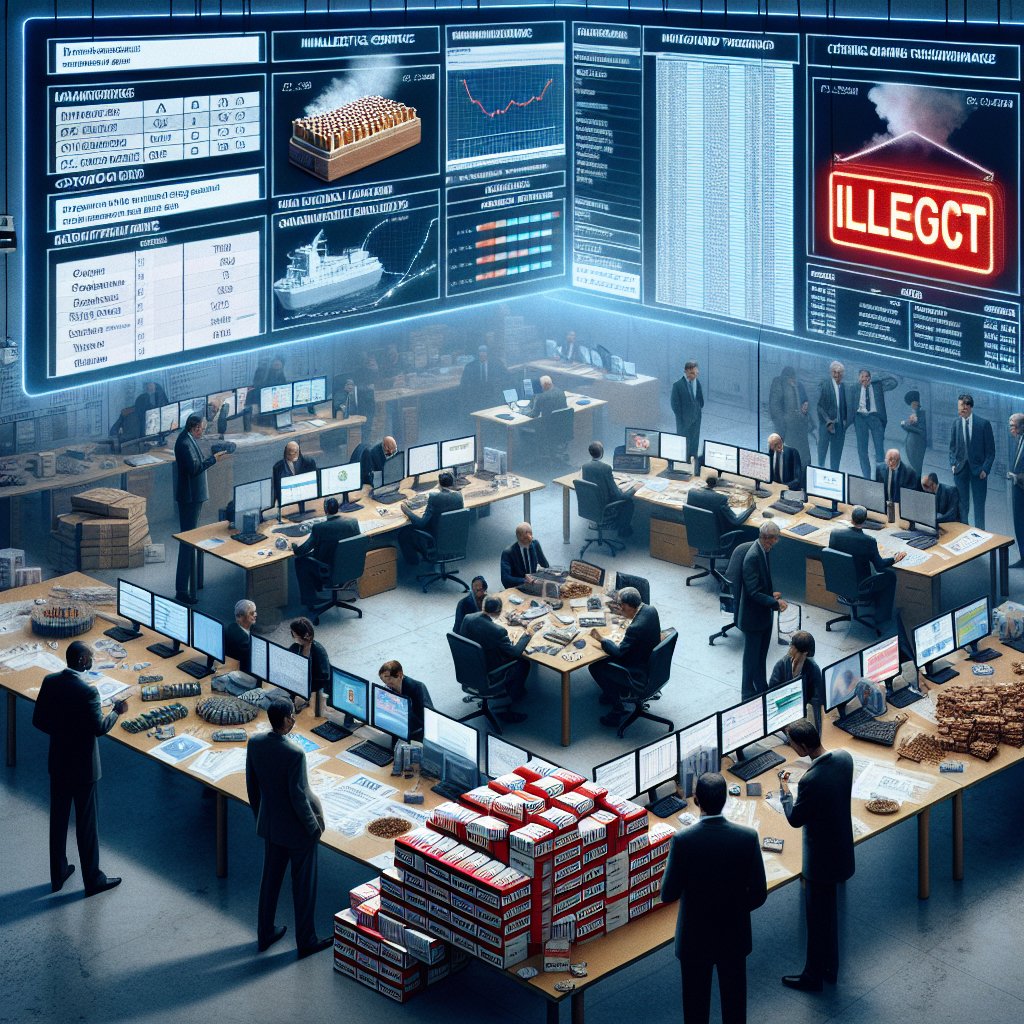Image created by AI
SARS Chief Edward Kieswetter Spearheads Battle Against Illicit Cigarette Trade Costing South Africa Billions
South Africa's battle against the illicit cigarette trade has reached a fever pitch, with the South African Revenue Service (SARS) Commissioner, Edward Kieswetter, leading the charge to reclaim billions in lost tax revenue and combat health risks posed by illegal tobacco products. The illicit cigarette market, which adeptly expanded during the COVID-19 lockdowns, now stands as a significant threat to the nation's economy and the health of its citizens.
The illicit cigarette industry in South Africa is not just about untaxed goods; it's about public safety and economic integrity. With estimates revealing a staggering R15 to R18 billion annual loss to the fiscus due to tax evasion practices by illicit trade operators, the challenges faced by SARS are more acute than ever. Equally concerning are the associated public health risks, since many of these non-regulated products fail to meet statutory health norms.
Kieswetter has stated that the tax authority is contending with about 100 active cases, making significant headway with R20 billion raised in assessed taxes - R4 billion of which has already been collected. This effort runs parallel to the adoption of reinforcement measures intended to monitor and regulate cigarette production. These strategies, however, have met with opposition and a notable legal setback, following a recent court ruling preventing SARS from installing surveillance cameras in cigarette manufacturers' warehouses to monitor operations.
The ruling delivered by Judge Linda Retief, which temporarily sidetracks SARS' ability to install CCTV cameras in these facilities, has not gone unchallenged. SARS, led by Kieswetter, has expressed its intention to appeal, arguing the need for site inspections and more stringent monitoring methods—a practice commonly held international standard in surveillance of alcohol and tobacco industries as part of licensing requirements.
While this predicament plays out in the courts, SARS' broader strategy remains clear: dismantling the entrenched networks of the illicit cigarette market that not only deprive the country of taxable income but also operate in direct conflict with its regulatory and health standards. SARS is appealing the decision and intensifying its efforts on the ground to defend the integrity of the tax system and protect citizens from the pernicious effects of the illicit tobacco trade.










